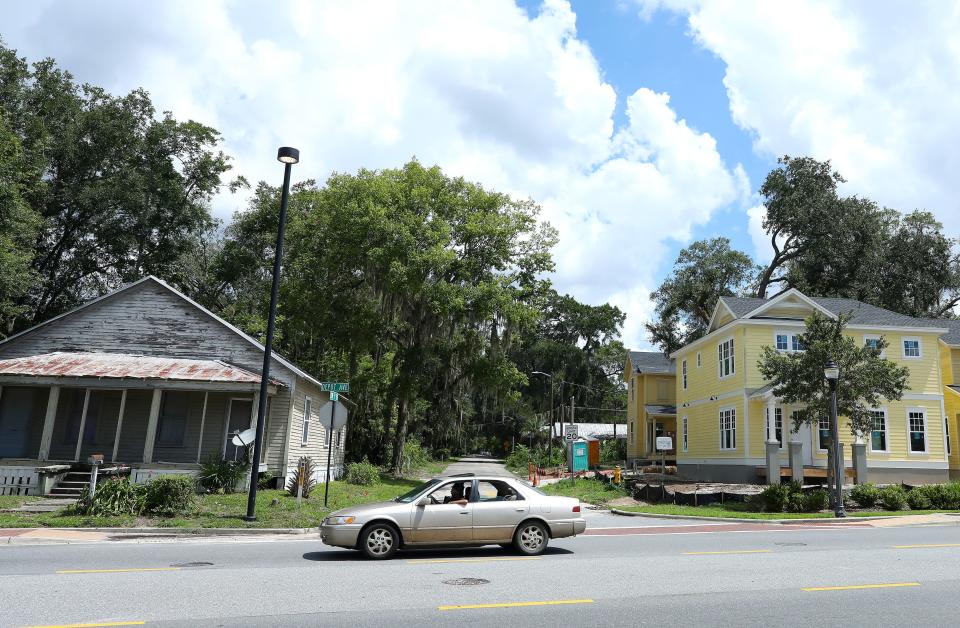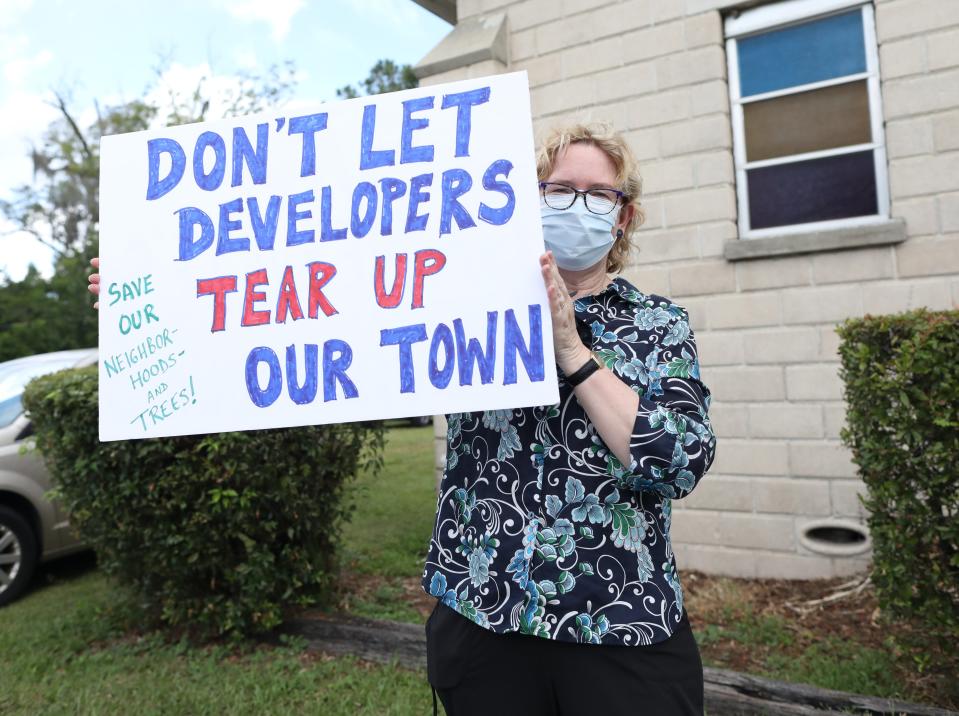Election results show a large majority of voters oppose abolition of single-family zoning
In his recent piece on the recent Gainesville City Commission election, columnist Ron Cunningham gets it wrong.
In his attempt to control the narrative, he declares “So much for a voter revolt” and argues that the elimination of single-family zoning was not central to the election. Unfortunately for his narrative, it’s clear a large majority of the voters oppose the abolition of single-family zoning. That is a revolt.
All it takes to arrive at that conclusion is cursory investigation.
Cunningham ignores that all but one candidate running for the City Commission (Casey Willits is the outlier) opposed the plan. Only one of the top-tier candidates for mayor supported that plan (David Arreola): He lost.

Ed Bielarski and Harvey Ward (who are in the mayoral run-off); Bryan Eastman (the District 4 City Commission seat winner); Ed Book and James Ingle (in the District 2 commission run-off), and DeJeon Cain (in the District 3 run-off with the aforementioned outlier Willits) all declared their willingness to rescind the ordinance if it moves forward.
In all but District 3, that’s 68% to 100% of the people voting for opponents of the plan, depending on the race.
If this commission passes it, and all the candidates do what they pledged, it’ll be rescinded by the new commission in January.
As for Cunningham’s contention that the results indicate the new commission will be as progressive as the current one — well, it depends on your definition of progressive.

If one defines progressive as supporting the plan to eliminate single-family zoning (a flawed definition, to be sure), then no, the new commission won’t be “as progressive.”
But is it progressive to eliminate single-family zoning? The proponents argue yes; the opponents, clearly equally progressive on other issues, argue no.
They ask, why is gentrification progressive? Why is the destruction of historic and stable single-family neighborhoods progressive? Why is arguing Gainesville must densify (become crowded) to allegedly prevent sprawl, when all other cities in the county want to sprawl and sprawl continues in the unincorporated area, progressive?
Why is the erection of pricey student housing in neighborhoods progressive? How are developer- and investor-friendly zoning and development regulations progressive? How is wasting at least four years on this cockeyed idea that eliminating single-family zoning will create affordable housing, instead of working on real affordable housing plans, progressive?

It’s too bad Cunningham wasn’t at the neighborhood meeting at Lincoln Middle School a few weeks ago when Arreola tried to defend his support of eliminating single-family zoning to a group of accomplished, adult homeowners. Carrie Parker-Warren told him, “My ancestors were told to get on the boat, then we were told to work the fields and when I hear you talk to us, what I hear is you saying to us, ‘Get on the boat.’”
As my team and I campaigned door-to-door in neighborhoods throughout the city we met no one — progressive, liberal or conservative — in favor of eliminating single-family zoning. People were incredulous and understood it was another in a long line of policies to hand the city to developers and investors: more overdevelopment, more traffic, higher taxes, less trees, less greenspace. I think other candidates heard the same.
Cunningham is wrong that this wasn’t and isn’t a predominant issue. But he is right about one thing: Gainesville isn’t a single-issue town, and if there is another prevailing issue, it’s Gainesville Regional Utilities.
But it’s unclear how voters voted on this.
My answer to those problems was reasonable, but not politically satisfactory. I said it’s a real mess requiring hard work on the GRU and general government budgets, and there’s no one-sentence silver-bullet easy answer.
Voters can research what the other candidates say.
So, two major issues, one of which Cunningham dismisses, the other he ignores, leading to his conclusion that Gainesville voters are “broad-minded and inclusionary —dare I say ‘progressive’? — and less inclined to indulge in single-issue voting.”
This, as some readers may recognize, is the classic straw horse, the classic red herring. It starts with the false premise (elimination of single-family zoning wasn’t a predominant issue); jumps to an unsupported and debatable conclusion: the “current commission’s policies regarding development, zoning, urban infill, equity, affordable housing and the like are more mainstream than commissioners get credit for”; then, out of left field, declares voters like “the steady transition from backwater college town to forward-thinking university city.”
It’s very debatable, none of which is supported by the votes cast.
Gary Gordon is a former city commissioner and mayor-commissioner who lost his bid to become mayor in the recent primary election. He is also a novelist and musician.
Join the conversation
Letters to the editor present the opinions of readers on news stories and other pieces published by The Sun. Share your opinions by sending a letter to the editor (up to 200 words) to letters@gainesville.com. Letters must include the writer's full name and city of residence. Additional guidelines for submitting letters and longer guest columns can be found at https://bit.ly/sunopinionguidelines.
Journalism matters. Your support matters.
Get a digital subscription to the Gainesville Sun. Includes must-see content on Gainesville.com and Gatorsports.com, breaking news and updates on all your devices, and access to the eEdition. Visit www.gainesville.com/subscribenow to sign up.
This article originally appeared on The Gainesville Sun: Gary Gordon: Election shows revolt against Gainesville zoning changes

